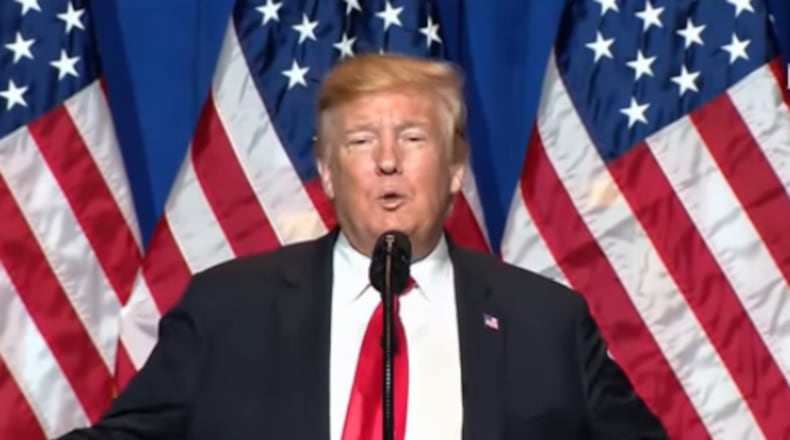"In general, IEEPA has served as an integral part of the postwar international sanctions regime," the Congressional Research Service wrote in a paper on the law earlier this year.
"No President has used IEEPA to place tariffs on imported products from a specific country or on products imported to the United States in general," the nonpartisan research report stated.
Moreover, even though IEEPA has been used more frequently than any other emergency power, no president has ever previously used IEEPA to impose tariffs on imports from another nation. The administration would be stretching the law to address a non-existent emergency. 4/8
— Elizabeth Goitein (@LizaGoitein) May 31, 2019
"This is a misuse of presidential tariff authority and counter to congressional intent," said Sen. Charles Grassley (R-IA), as some experts were skeptical about the law being used for tariffs on Mexico.
"I don't read IEEPA as a clear delegation of power to impose tariffs," said Jennifer Hillman, a Georgetown University law professor. "Probably why no President has ever used IEEPA to impose tariffs.”
"To invoke IEEPA, Trump will have to issue an executive order declaring a national emergency, and further declaring illegal immigration to be 'an unusual and extraordinary threat” to 'the national security, foreign policy, or economy of the United States,'" wrote Elizabeth Goitein of the Brennan Center for Justice.
"This is clearly an enormous abuse of IEEPA," said Edward Alden, a senior fellow at the Council on Foreign Relations. "But who will stop him? The courts? The Congress?"
But others argue the language of the IEEPA - and the broad 'emergency' powers granted by Congress - leaves the field wide open for President Trump to act unilaterally on trade, whether against Mexico or any other nation.
"After all, IEEPA was not enacted with anything like Trump’s commercial crusade in mind," wrote a group from the Peterson Institute for International Economics.
"To be sure, Trump's IEEPA tariffs would be vigorously challenged as a massive usurpation of the congressional power 'To regulate Commerce with foreign Nations,'" the writers added - in a paper which was written in September of 2016 - basically predicting such a trade move before Mr. Trump was even elected.
For anyone interested in technicalities, the new #Mexico #tariffs are being invoked under the International Emergency Economic Powers Act (IEEPA)
— Gregory Daco (@GregDaco) May 31, 2019
> to deal w/ threat national security, foreign policy, or economy if President declares a national emergencyhttps://t.co/yVYlHUiXVO pic.twitter.com/gab8ULLfyT
"IEEPA grants broad statutory authority, so may be hard to challenge Trump's IEEPA tariffs in court," said Simon Lester of the CATO Institute, who noted on Twitter that Congress could still block the move.
But Congress has taken no steps to stop any other move by President Trump when it comes to import duties.
"How many times will Congress let the president unilaterally raise taxes on Americans?" asked Rep. Justin Amash (R-MI).
"All the times," he said.
About the Author

